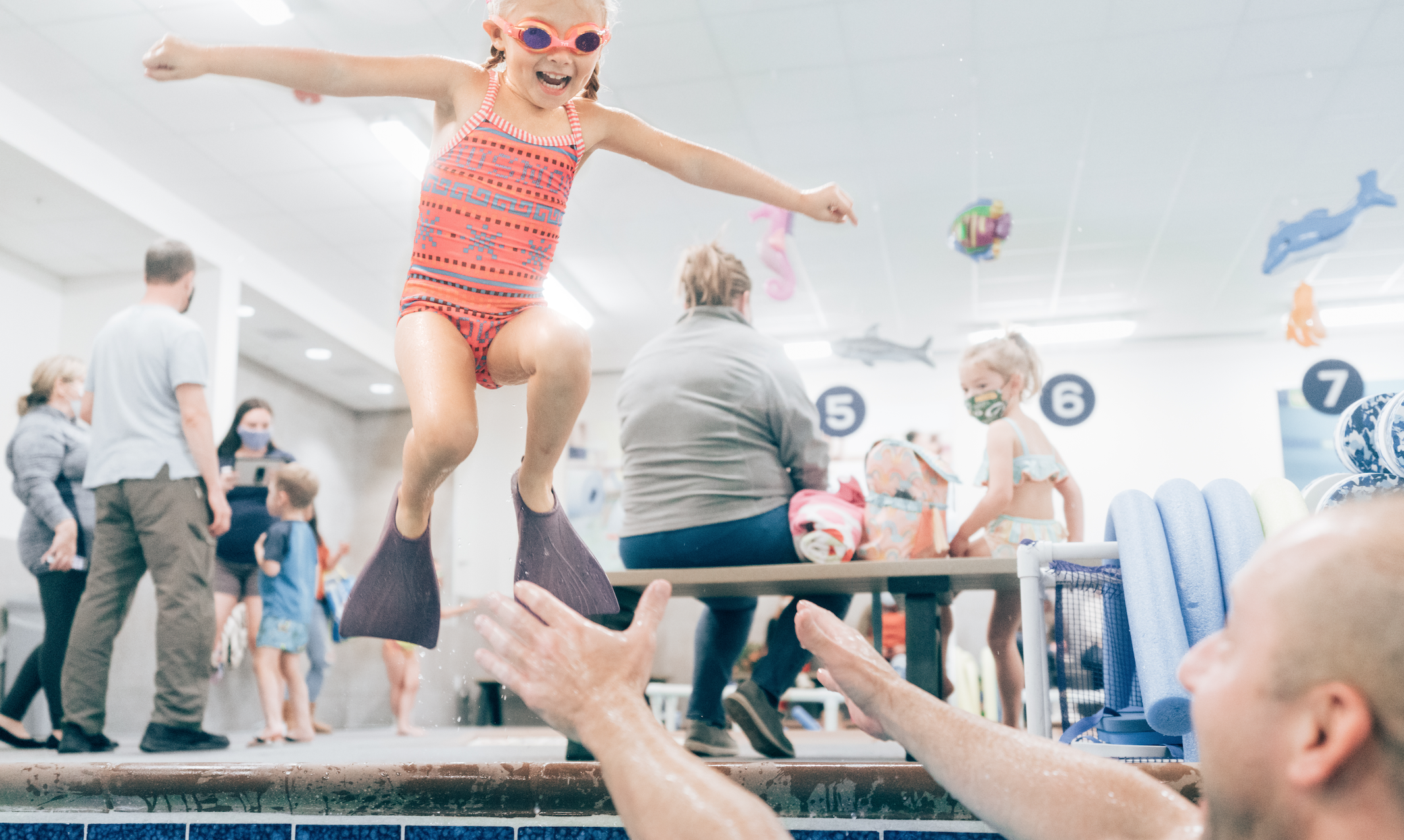As a new year begins, there is always excitement that comes from the promise of new experiences and reaching new milestones. But all that newness can also be a source of uncertainty—can I make it? What will it be like? Will I be scared?
This is just as true for kids as it is for adults. We should know: At Foss Swim School, we’ve been helping our students try new experiences and achieve milestones for 28 years. Sometimes it’s easy, and sometimes it takes a little more creativity to help kids get comfortable with new things, but we haven’t yet met a child who couldn’t try something new.
While our expertise is teaching water safety and swimming, a lot of the things we do as part of the FOSS curriculum and teaching approach are also good general tips to help kids try new things out of the water too. As we start this new year, keep these in mind while introducing your kids to new things:
Turn new experiences into play
It’s a tip as old as making airplane sounds while flying a spoonful of vegetables: Kids love to play and interact. Look for ways to turn a new experience into a game and be sure to play along too. At FOSS, it means holding your breath becomes monkey cheeks, and turning into a mermaid to learn to kick. With a little creativity, anything can become or include a game.
Break it down into small steps
A new instrument, new activity, or new anything might seem like a big mountain to climb, but if you break it down as much as possible, each step can be addressed separately. Each step should have a beginning and end where you can pause, even if it flows into the next step. We often teach strokes one limb at a time.
Help kids mentally prepare
Anticipation and uncertainty are often the source of fear or worry even more than the actual activity. In many cases, we talk to kids about the end result, and not what’s involved. Taking time to describe all the steps in detail—including getting ready at home, driving to and from an event, and what will happen along the way—can help kids visualize what they are in for (with the caveat to keep it simple enough to understand.)
Celebrate successes – especially the little ones
With small steps, you also have plenty of opportunities for small celebrations. Kids especially have a hard time with delayed gratification, but a reward just within reach can be powerful motivation. Rewards don’t need to be big (and in fact can be part of practice) – our teachers reward kids with cannonballs or diving for rings, favorite activities of many students and a reason to work hard during class.
Ask kids for their input
Even with an involved teacher or guide, kids still may have hesitations. If you’re explaining an activity and still sense hesitation, give them a chance to offer input. It doesn’t mean doing whatever they say, but you might find ways to customize the experience. Maybe they just need a literal hand to hold the first time they try something, or maybe another reward is more motivating. Involving kids in planning may help lead to success.
Always be positive
Finally, no matter how a new experience goes, don’t forget to always react with a positive attitude. If you ask a child to try a new food and they do, and still don’t like it, congratulate them for the try—now they know, and maybe it’ll taste better next time! If a lesson doesn’t seem to stick one day, remind them that they did their best and that’s what matters. You can always try again, and you want to leave them with a positive impression so they will be willing to.
People will end up trying new things over and over throughout their lives. The experiences they have and lessons they learn are valuable in and of themselves, but just as important is learning that trying new things can be fun.
Even if any given activity or experience turns out not to be a favorite or only is important for a short time, the ability to try new things is a talent no one should ever outgrow.
